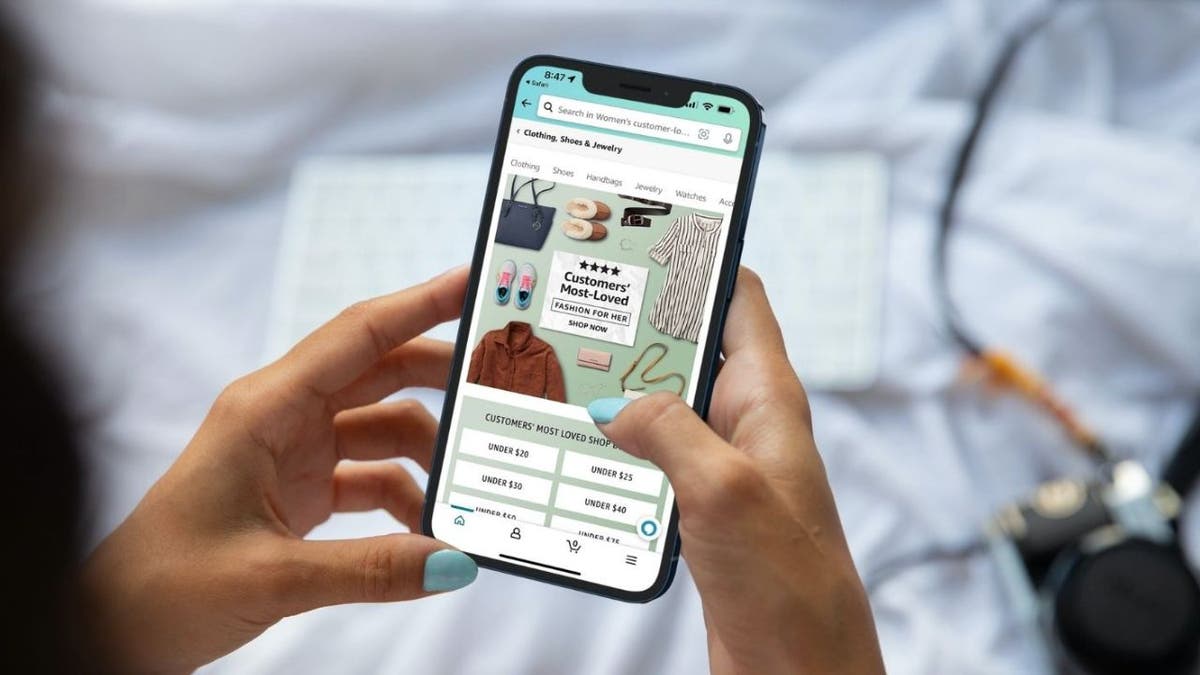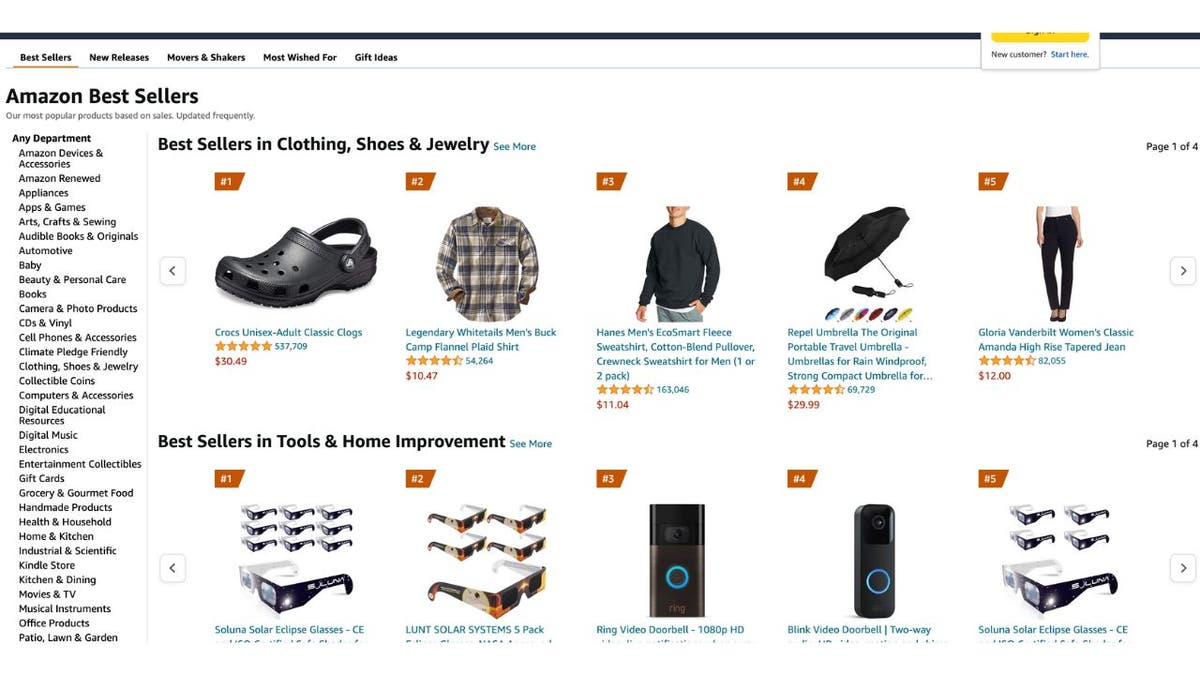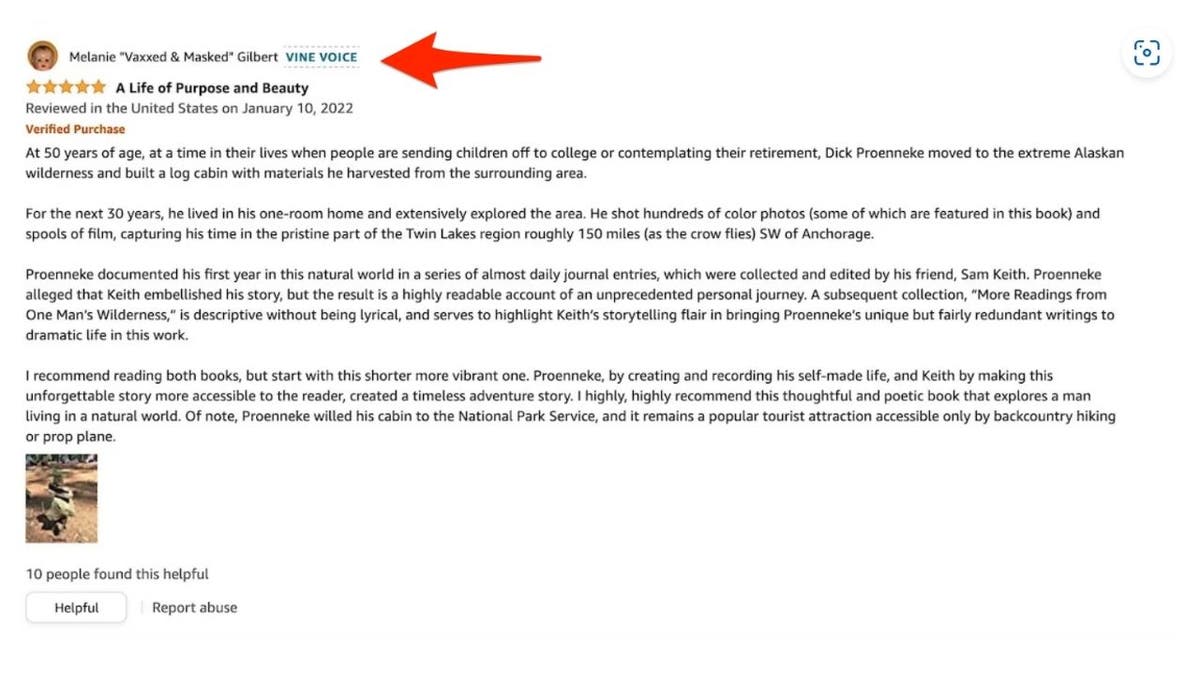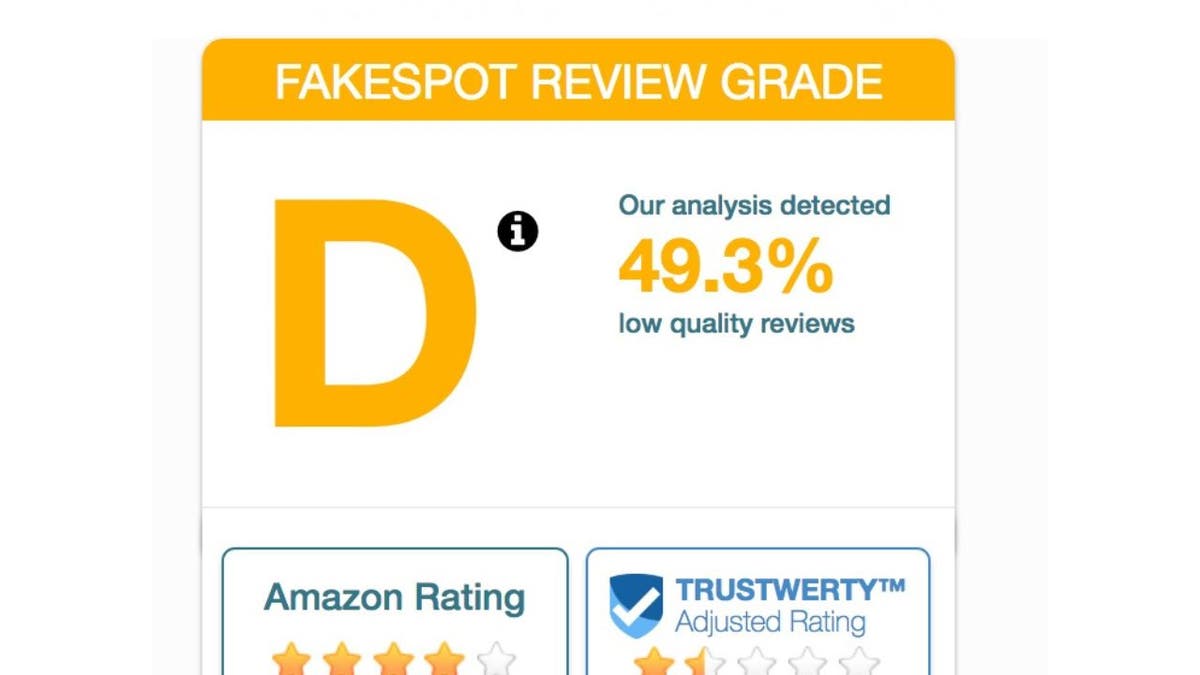How to hide photos on an iPhone
Kurt ‘The CyberGuy’ Knutsson explains how to use the hidden album feature in the photos app to store private pictures on an Apple iPhone.
If you are planning to shop for Amazon Prime days coming up soon, you might want to be careful about fake reviews. Fake reviews are a serious problem for online retailers like Amazon because they can mislead consumers and damage trust.
According to a study by Review42, fake reviews influence $791 billion of e-commerce spending annually in the U.S. You know what I’m talking about. A product has tons of glowing five-star reviews for an item that is just so-so at best.
So, how do these fake reviews get created? Well, some sellers pay or reward real users to write positive reviews for their products or hire review brokers who have access to hundreds of accounts. Some even use artificial intelligence chatbots to generate bogus reviews that sound like real humans and are now flooding online retail sites.
To combat this problem, Amazon and other retailers have been investing in new technologies and processes to detect and prevent fake reviews and taking legal action against those who create them.
CLICK TO GET KURT’S FREE CYBERGUY NEWSLETTER WITH SECURITY ALERTS, QUICK VIDEO TIPS, TECH REVIEWS

Amazon is investing in new technology to combat fake reviews. (CyberGuy.com)
MORE: AMAZON SHOPPERS ‘BRIBED’ TO LEAVE POSITIVE REVIEWS
Fake reviews are a cat-and-mouse game
Amazon says it proactively blocked over 200 million suspected fake reviews from its stores in 2022. That may seem like a lot, but it’s just a drop in the bucket if you consider that Fakespot, a fake review detection service, says that roughly 42% of all online reviews are fake.
It’s a cat-and-mouse game. Some of the new technology that Amazon includes machine learning models that analyze thousands of data points to detect risk, including relations to other accounts, sign-in activity, review history and other indications of unusual behavior.
The company says it also employs expert investigators who use sophisticated fraud-detection tools to analyze and prevent fake reviews from ever appearing in its store.

Amazon is utilizing machine learning to prevent fake reviews. (Credit: Amazon )
MORE: HOW CLICKING ON THAT FAKE AMAZON AD CAN LEAD TO MICROSOFT SUPPORT SCAM
Amazon’s legal action against fake review brokers
In addition to its proactive technology that protects its store, Amazon also takes legal action against fake review brokers who are the source of many fake reviews. These are individuals or organizations that offer to write or solicit fake reviews for a fee, often using AI tools or networks of fake accounts.
Amazon says it has teams dedicated to uncovering and investigating fake review brokers. In 2022, Amazon claims it took legal action against over 90 fraudsters who facilitated and solicited fake reviews across China, Europe and the U.S. In addition, by the end of May 2023, it says it took legal action against another 94 bad actors.
By suing these cyber crooks, Amazon says it can deter others from engaging in similar criminal activities, and it also helps the company obtain information that can help identify and stop other fake review schemes.
APPLE WATCH SERIES 9 VS. ULTRA 2: WHICH ONE SHOULD YOU BUY?
Amazon is working on a way for customers to get real reviews
In response to the ever-growing menace of fake and misleading reviews, Amazon established Amazon Vine for customers to get genuine and unbiased product reviews.
Amazon Vine is an invitation-only program that selects the most insightful reviewers in the Amazon store to serve as Vine Voices. These reviewers can order items free of charge and share their product experiences with Amazon customers. The goal? To help shoppers make informed buying decisions.
Once shoppers are accepted to be a part of the Vine Voices program, they get to choose products from a wide range of brands. These products are delivered right to their doorsteps at no cost. After trying out these products, Vine Voices reviewers share their candid and unbiased reviews — whether they’re positive, neutral or even negative.
These reviews appear alongside other customer reviews, and they’re distinguished with a special badge — “Vine Customer Review of Free Product.” Additionally, anyone who is a member of the Vine Program will have a badge on all the reviews left on Amazon, distinguishing them as Vine Voice. This badge appears next to their profile name for all reviews, whether they are related to Vine products or not.
Amazon keeps an eye on its Vine Voices reviewers, and it will evaluate the quality of their reviews over a 6-month period. If the reviews are top notch, they stay in the program; otherwise, they might get the boot.
HOW THE SNEAKY CEO APPLE GIFT CARD SCAM ALMOST GOT ME

Vine Voices reviews are evaluated by Amazon for six months. (Amazon )
MORE: IT’S TIME TO TAKE CONTROL OF YOUR ONLINE PRIVACY WITH AMAZON
Banding together to fight fake reviews
Amazon is not alone in its fight against fake reviews. The company is part of the Coalition for Trusted Reviews, a group of online retailers and platforms that share a common goal of ensuring trustworthy consumer feedback.
The coalition, made up of Amazon, Booking.com, Expedia Group, Glassdoor, Tripadvisor and Trustpilot, aims to establish the global standard for reliable and trustworthy consumer reviews, through continuous education, collaboration\ and advocacy.
The companies met in San Francisco in October 2022 at the first-ever Fake Reviews Conference. This year, they chose to host the second conference in the EU, in Brussels, Dec. 5-6.
The coalition hopes the meeting will result in greater public and private partnerships to stop fake reviews at the source.
How to tell if an online review is fake
- Check the history of the reviewer. Many fake reviews are from new accounts with very little track record of leaving authentic reviews.
- Repeated words or thoughts in reviews. When you see a similar pattern happening from one good review to another, it could be the same person leaving multiple reviews.
- Reviews posted near the same date all at once. These are often fake reviews when a load of positive reviews suddenly appear out of nowhere. Check the dates on reviews to make sure they are spread out.
- Check for verified purchasers who actually bought the item. Amazon has a verified badge program that shows if someone owns the item he is reviewing.
- Use bogus review detection sites like Fakespot.com
HOW TO USE SAFARI PROFILES ON IOS 17 TO SEPARATE WORK FROM YOUR PERSONAL LIFE
Here’s how to report a fake review on Amazon
- Log onto Amazon.com and sign in to your account
- Find the product page of the item that you received the offer for
- Scroll down to the customer reviews section and look for the review that matches the offer
- Click on the Report Abuse button below the review and follow the instructions
- You can also send an email to [email protected] with the details of the offer and the seller
Amazon also warns customers against using third-party tools, such as Fakespot, that claim to detect fake reviews. The company spokesperson we talked to said that these tools are often inaccurate and misleading because they do not have the information that Amazon has, such as reviewer, seller and product history, to accurately determine the authenticity of a review.
HOW TO HIDE PHOTOS ON ANDROID FROM SNOOPS

Amazon warns against using third-party tools to detect fake reviews. (CyberGuy.com)
The spokesperson also said Amazon regularly reviews products where Fakespot rated a product’s reviews as untrustworthy and found that their findings were wrong more than 90% of the time.
BEST ALARM APPS TO HELP YOU WAKE UP
Kurt’s key takeaways
Online reviews are very useful when you want to buy something, but sadly not all of them are real. Some are fake or written by bots or paid people who don’t care about the product. That’s why the Coalition for Trusted Reviews is trying hard to stop them, using technology, the law and your cooperation. They want to make sure the online reviews are honest and helpful. Not false and detrimental. So, if you see a fake review, be sure to report it no matter what platform you are on.
How do you feel about the problem of fake reviews and the efforts of Amazon and other online retailers to combat it? Let us know by writing us at Cyberguy.com/Contact
For more of my tech tips & security alerts, subscribe to my free CyberGuy Report Newsletter by heading to Cyberguy.com/Newsletter
Ask Kurt a question or let us know what stories you’d like us to cover
CLICK HERE TO GET THE FOX NEWS APP
Answers to the most asked CyberGuy questions:
Copyright 2023 CyberGuy.com. All rights reserved.

